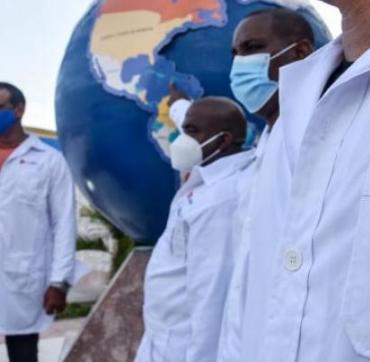The war is lost, so why is Netanyahu still killing civilians in Rafah?
especiales

Just hours after Israel carried out a gruesome massacre of displaced Palestinians in the Tel Al-Sultan area west of Rafah in the Gaza Strip on 26 May, it carried out yet another massacre in the Al-Mawasi area. The first is now known as the “Tents Massacre”. It took place shortly after the International Court of Justice (ICJ) finally issued a stern demand that, “Israel must immediately halt its military offensive and any other action in Rafah which may inflict on the Palestinian group in Gaza conditions of life that could bring about its physical destruction in whole or in part.”
The killing of 50 Palestinians in their own displacement tents was the answer given by Israeli Prime Minister Benjamin Netanyahu and his extremist government to the ICJ and the rest of the international community. The successive Israeli massacres in Rafah demonstrate the degree of intransigence of Israel’s genocidal regime.
Netanyahu and his Minister of Defence, Yoav Gallant, who could both be on the official “wanted” list of the International Criminal Court (ICC) within weeks, could easily have chosen a different path, even for mere political manoeuvring. They could, for example, have delayed their Rafah operation or changed strategies, just to avoid further ICJ rulings on the matter.
Instead, they went for the most arrogant and cowardly of choices: killing civilians.
Their 2000lb bunker-busting bombs dismembered and beheaded children as they lay beside their mothers in makeshift camps that have no water, no electricity and no food. While the Israeli army offered the world a clearly concocted version of what happened, blaming “militants” and such, Netanyahu’s office described the attack as a mistake.
Both versions, of course, were lies. The Israeli army possesses some of the most advanced surveillance technology in the world, thanks to US generosity and continued support. It could easily have distinguished between a Palestinian Resistance operational area and a refugee camp filled with children and women.
READ: Israel tanks advance into Rafah centre despite global outcry
If the attack was indeed a mistake, what explains the other massacres that followed, also in Rafah and in nearby Mawasi, which killed and maimed scores of refugees? And what is the logic behind the killing and wounding of nearly 130,000 Palestinians since the start of the war on 7 October, the majority of whom were women and children?
The Tents Massacre was neither a mistake, nor can it be blamed on imaginary militants operating from inside displaced refugees’ tents. Nevertheless, Netanyahu did have his own logic. For a start, he wanted to send a direct message to let the ICJ know that Israel is not perturbed by its direct order to end the Rafah operation. The intended audience of this message was not necessarily the ICJ judges, but the international community, which remains, despite its solidarity rhetoric, ineffectual in influencing the duration, direction or nature of the Israeli war.
Netanyahu also wanted to score cheap political points against his rivals in his War Cabinet, by presenting himself as the bold Israeli leader who is standing up to the whole world. He has stated over and over again that “[the Jewish people] will stand alone.”
The Israeli leader must also have been informed that more Israeli soldiers had been captured by the Palestinian Resistance. The latter’s statement about this on 25 May was issued just one day before Netanyahu attacked Rafah. From a military point of view, the capturing of more soldiers who were sent to Gaza supposedly to free other Israeli captives should have been a “game over” moment.
READ: Combatting academic censorship of the Palestinian narrative in the UK
The Gaza Resistance hasn’t released any more information since the initial, brief statement by Al-Qassam military spokesman, Abu Obeida. Hamas is known for releasing information to the public when it is strategically most opportune to do so, as was the case in its announcement that it is holding Israeli Colonel Asaf Hamami, who Israel declared to be dead last December.
Netanyahu and his army are trying desperately to pre-empt the angry reaction in Israeli society about the capture of soldiers by keeping the news focused on Rafah.
He knows that such massacres widen his circle of support among his extreme far-right constituency.
Moreover, the timing of the massacre was also a message to the US, the mediators (Egypt and Qatar), Hamas and even members of the War Cabinet who are keen on ending the war through a truce agreement. Media reports have spoken about a potential breakthrough in talks, starting in Paris before moving to Doha, which showed some willingness on the part of Israel to link the release of prisoners to a permanent truce.
Such an agreement would be considered a defeat from Netanyahu’s point of view, and would certainly usher in the end of his political career. Hence, he simply lashed out against the refugees of Rafah with the hope of disrupting any potential deal in Doha.
It was for the same reason that his troops opened fire at Egyptian soldiers at the Rafah Crossing, killing one, possibly two, and wounding more. Egypt has been an important mediator in the truce talks. Attacking the mediator is not only humiliating for the Egyptian government, but for the army and Egyptian people as well.
Although Netanyahu has no strategy for the war itself, he has a strategy for prolonging his own political survival. It is predicated on mixing the political cards, ensuring chaos and carrying out constant massacres against civilians, all safe in the knowledge that Washington will always remain on his side no matter what. The Israeli leader is just buying time, though. Israel’s top generals and military experts and analysts know that the war has been lost and that prolonging it will not, in any way, alter its predictable outcomes.














Add new comment